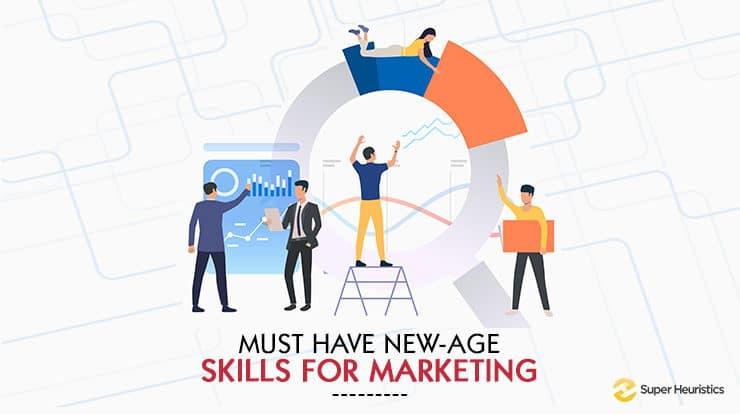In today’s fast-paced digital landscape, where more people own smartphones than toilets, the power of marketing has never been more significant. Giuseppe Stigliano invites us too reconsider what marketing truly means—not as a tool for manipulation, but as a form of storytelling and connection that permeates our everyday lives. In a recent YouTube video, Stigliano eloquently unpacks the concept that we are all, in some way, marketers; from curating our social media profiles to choosing the perfect outfit, each decision is a chance to craft our personal brand.
But there’s more at stake than just personal expression. Stigliano highlights the ethical dimensions of marketing, questioning the unsustainable practices that have dominated the industry. As he draws parallels between human behavior and nature—the peacock displaying its plumage or a bear selecting a fishing spot—he emphasizes the innate drive to communicate, connect, and thrive. This blog post will delve into the thought-provoking insights shared by Stigliano,exploring how we can harness our marketing skills responsibly while navigating an ever-evolving consumer landscape. Join us as we unlock the secrets to effective marketing that honors our shared humanity and inspires thoughtful engagement.
Table of Contents
- Understanding the Ubiquity of Marketing in our Lives
- The Transformative power of Technology in Modern Marketing
- Ethical considerations: Balancing Growth and Responsibility
- Crafting Memorable Experiences: The Art of Product positioning
- Q&A
- Key takeaways
understanding the ubiquity of Marketing in Our Lives

In an age where over 6 billion people have access to mobile phones, the landscape of marketing has evolved dramatically, enabling unprecedented connectivity. This ubiquity is not merely about advertising products; it’s about fostering interaction and building relationships. Marketers can now reach potential customers around the globe, transcending barriers we once considered insurmountable. The essence of marketing is embedded in our daily lives, as each engagement is a form of marketing. as a notable example,when you share a snapshot of your gourmet meal or a recent travel experience,you are participating in this vast promotional web,akin to professional marketers who curate campaigns for their brands. In fact, marketing’s effective reach allows us all to become inadvertent marketers of our own lives, crafting personal brands through our choices and presentations.
This phenomenon prompts us to rethink our relationship with marketing—not as mere consumers but as active participants in a collaborative ecosystem. Consider the role of marketing in decision-making; it helps us navigate an overwhelming array of similar products, guiding us not just in choices but also in identity formation. Much like the peacock displaying his feathers to attract mates, we too showcase our preferences and values to connect with others. This primal instinct towards marketing finds its roots in the natural world, prompting reflection on why we need such interactions. Marketing is not inherently manipulative; rather, it serves a fundamental role in our existence—defining our choices, enhancing communication, and enabling identity construction in both personal and communal contexts. this interconnectedness underlines that while strategies are crafted for business growth, the ethical foundation of marketing remains essential for nurturing a thriving society.
The Transformative Power of technology in Modern Marketing

The advent of technology has been a game-changer for marketers, bridging the gap between brands and their audiences like never before. With over 6 billion people accessing mobile phones globally, the landscape of marketing has transformed into a dynamic and widespread arena. This unprecedented access allows marketers to reach individuals anywhere, facilitating not just transactional interactions, but genuine engagement. Through innovative campaigns tailored for various platforms, companies can forge a connection with consumers that resonates on a personal level. The ability to exchange thoughts and recommend products across diverse demographics has redefined marketing strategies, ushering in an era where even the average individual participates in this vast marketing ecosystem. It’s an age where every social media post and personal brand effort contributes to the larger narrative of commerce.
Reflecting on the ancient context of marketing, one can appreciate how it serves more than just promotional purposes. As Giuseppe Stigliano points out, marketing is deeply woven into the fabric of our daily lives – from the choices we make about our appearances to our dining selections. This natural inclination towards marketing is akin to behaviors observed in the animal kingdom, where creatures engage in self-promotion to attract mates or resources.In our complex human society, effective marketing strategies are essential for navigating the overwhelming array of similar products.Packaging, brand positioning, and storytelling become pivotal tools that aid consumers in making informed choices. Therefore, in an increasingly interconnected world, the role of marketing should not be seen merely as a commercial endeavor but as a vital element that shapes our identities and societal interactions.
Ethical Considerations: Balancing Growth and Responsibility

In today’s fast-paced digital landscape, ethical marketing practices have never been more crucial. With over six billion people connected via mobile phones, marketers possess unprecedented access to consumer insights and preferences. However, this reach comes with a responsibility to ensure that campaigns foster genuine engagement rather than manipulate emotions or obscure truths. As we craft strategies,we must recognize that growth should not come at the expense of integrity. leveraging technology to connect with audiences opens new avenues for creative expression, but it also necessitates a commitment to transparency and honesty. Below are key ethical principles to consider in marketing:
- Transparency: Clearly communicate the intent behind marketing messages.
- Respect for Consumer Autonomy: Empower consumers to make informed choices.
- Sustainability: Promote products and practices that are environmentally responsible.
- Inclusivity: Represent diverse voices and perspectives in marketing content.
Moreover, the recognition that all individuals engage in marketing—from sharing personal experiences on social media to selecting products that represent their identity—underscores the responsibility marketers have to guide this behavior positively. Drawing inspiration from nature, such as a male peacock’s display to attract partners, we see that authenticity and connection are paramount. If we, as marketers, disregard our ethical obligations, we risk perpetuating a cycle of superficial growth that neglects long-term well-being for both society and the habitat. Ethical marketing not only promotes products; it cultivates relationships based on trust and value. Below is a comparison table that highlights the balance between growth and ethical responsibility:
| growth Strategy | Ethical Responsibility |
|---|---|
| Maximizing short-term sales | Building sustainable relationships |
| Aggressive advertising | honest messaging |
| Exploiting data | Prioritizing privacy |
| Chasing trends | Supporting community needs |
Crafting Memorable Experiences: the Art of Product Positioning
In a world of over six billion mobile phone users, the challenge for marketers is not merely to promote products, but to craft memorable experiences that resonate deeply with consumers. This requires an acute awareness of how products are positioned within the marketplace, using every tool at one’s disposal—from captivating packaging to compelling storytelling. Effective product positioning acts as a bridge that connects the desires of consumers with the offerings of brands, ensuring that choices are not just made in favor of one product over another, but based on a *meaningful relationship* that has been cultivated through strategic marketing efforts. Marketers today must think beyond the transactional nature of sales to examine how their products fit into the broader narrative of a consumer’s life.
The essence of successful marketing lies in understanding that we are all marketers in our daily lives. Just as a peacock displays its plumage to attract potential mates, individuals curate their personal brands through social media, fashion choices, and lifestyle decisions. This intrinsic need to position oneself effectively reflects fundamental marketing principles, which can be harnessed when promoting products. A well-crafted positioning strategy addresses the consumer’s need for identity and belonging while also simplifying the overwhelming array of similar choices available. An effective marketing strategy, therefore, is not about manipulation but about creating a framework within which consumers can navigate their options and discover what truly resonates with their values and needs.
Q&A
Q&A: Unlocking Super Marketing Skills – Insights from Giuseppe Stigliano
Q1: What inspired Giuseppe Stigliano to discuss marketing in the context of today’s world?
A1: Giuseppe Stigliano highlights a compelling statistic that emphasizes the reach of marketing in our interconnected world: there are 6 billion people with access to mobile phones, compared to only 4.5 billion who have access to toilets. This striking contrast illustrates the vast potential for telecommunications and marketing, leading him to explore how marketers can leverage technology to connect with consumers in unprecedented ways.
Q2: How does Stigliano define the role of marketing in our daily lives?
A2: Stigliano argues that marketing is not just an industry practice but a fundamental part of our lives. He suggests that everyone engages in marketing every day—whether it’s posting selfies, curating their personal brand on social media, or making daily decisions about appearance and dining. This perspective democratizes marketing, showing that it’s an essential communicative tool that helps us express identity and make choices.
Q3: In what ways does Stigliano compare human marketing behavior to that seen in nature?
A3: Stigliano draws a parallel between human marketing strategies and behaviors observed in the animal kingdom, using the example of a male peacock displaying its feathers to attract mates. He likens this to marketers striving to present their products attractively to maximize engagement. Additionally, he mentions a female bear strategically choosing a river for fishing, comparing it to making informed marketing decisions. This illustrates that the principles of marketing are instinctual and rooted in survival and communication.
Q4: What ethical considerations does Stigliano emphasize regarding marketing?
A4: Stigliano presents marketing as an ethically significant practice, as defined by Philip Kotler, the father of marketing. He emphasizes that marketing serves a useful purpose, helping individuals make informed choices and build identities. However, he critiques the traditional view of business that prioritizes unrestricted growth and often ignores the environmental and social impacts of marketing practices. stigliano advocates for a more sustainable and ethical approach to marketing that acknowledges resource limitations and the need for responsible business practices.
Q5: What actions does Stigliano suggest marketers should take in light of current challenges?
A5: Stigliano calls for marketers to re-evaluate their approaches,moving away from the mere pursuit of growth and acknowledging the finite resources of our planet. He suggests that marketers should focus on creating meaningful connections with consumers and promoting products and services that truly enhance lives. By doing so, they can ensure that marketing remains a force for good in society.
Q6: how can individuals apply Stigliano’s marketing insights in their own lives?
A6: Individuals can embrace their daily marketing activities by being mindful of how they present themselves and their choices to others.By recognizing the inherent marketing skills they possess, people can leverage these to enhance their personal brands, improve their decision-making, and communicate more effectively. Moreover, adopting an ethical mindset in personal and professional encounters can lead to more enriching and responsible interactions with others.
Q7: What is the overarching message of Stigliano’s insights on marketing?
A7: The overarching message is that marketing is an integral part of human interaction and existence.It can be a powerful tool for connection and identity-building when practiced ethically and sustainably. Stigliano encourages marketers and individuals alike to take responsibility for their role in this ecosystem, fostering a community that values meaningful engagement and responsible practices in a rapidly evolving world.
Key Takeaways
As we draw the curtains on our exploration of ”Unlocking Super Marketing Skills” with Giuseppe stigliano, it’s clear that marketing is much more than just a strategy for selling products—it’s a fundamental aspect of human interaction. The staggering statistic that there are more mobile phones than toilets serves not only as a commentary on global disparity but also as a testament to the profound connectivity that marketing facilitates in our lives.
Giuseppe’s insightful reflection on how we all engage in marketing daily reminds us that it’s woven into the fabric of human existence. Whether curating our social media presence or making choices that express our identities, we participate in this intricate dance of influence and expression. This perspective challenges the often-negative connotation associated with marketing and instead reveals its necessity in a world rich with choices and voices.
Moreover, the call for ethical marketing practices highlights a crucial shift we must prioritize if we want to harness the power of marketing for the greater good. As we navigate our increasingly complex consumer landscape, we must remember that responsible marketing can drive not only sales but also meaningful connections and positive societal change.
in a world where consumer behavior is constantly evolving, the insights shared by Giuseppe Stigliano empower us to harness our innate marketing skills with purpose and integrity. So, as you step away from this discussion, reflect on how you can apply these lessons in your own life, whether in personal branding or responsible consumption. remember, we are all marketers, and together, we can shape a world where marketing is a force for good.
Thank you for joining us on this journey. until next time,keep embracing your inner marketer!



